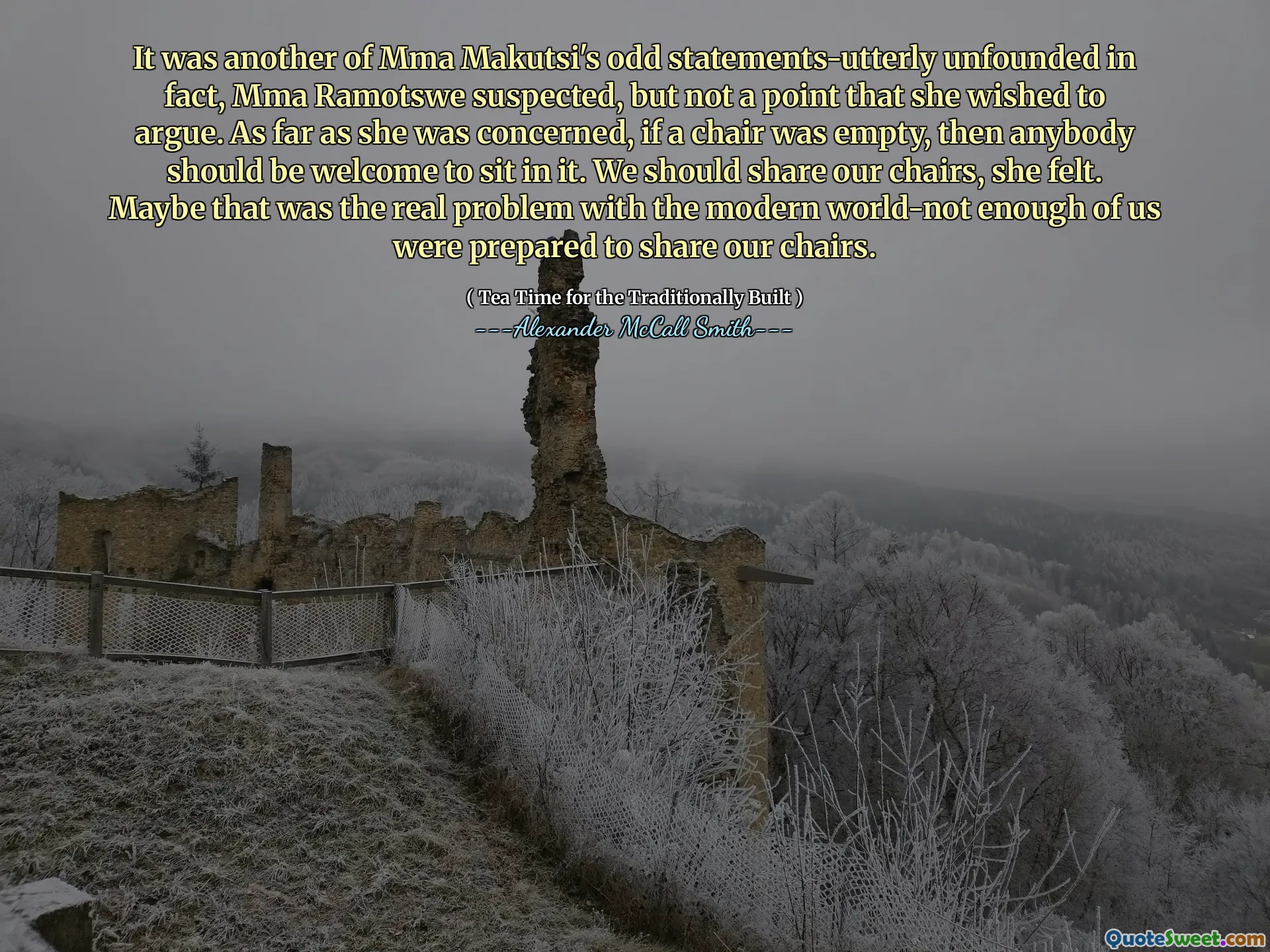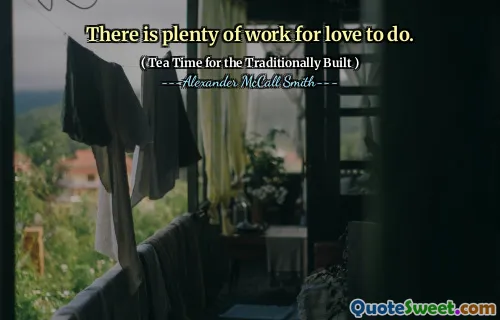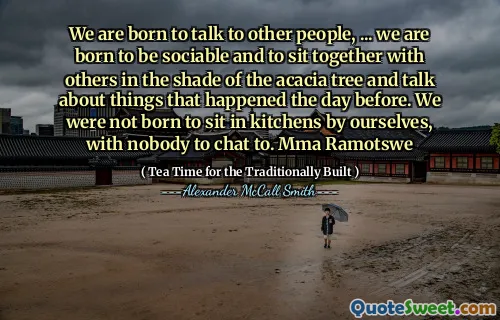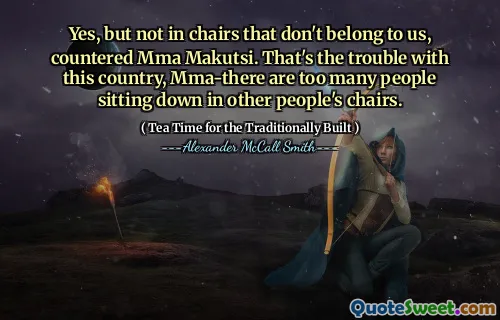
It was another of Mma Makutsi's odd statements-utterly unfounded in fact, Mma Ramotswe suspected, but not a point that she wished to argue. As far as she was concerned, if a chair was empty, then anybody should be welcome to sit in it. We should share our chairs, she felt. Maybe that was the real problem with the modern world-not enough of us were prepared to share our chairs.
In "Tea Time for the Traditionally Built," Mma Makutsi makes a peculiar comment that Mma Ramotswe finds questionable yet chooses not to dispute. This highlights the dynamic between the characters, where Mma Ramotswe often prefers harmony over confrontation. Mma Ramotswe has a more open-minded view, believing that an empty chair should be available for anyone who wishes to use it, embodying a spirit of inclusivity and welcome.
This simple act of sharing a chair serves as a metaphor for a deeper societal issue that Mma Ramotswe reflects on. She suggests that the reluctance to share resources and spaces may contribute to many modern problems. In her perspective, fostering a sense of community and willingness to share is crucial for a better world. This idea resonates with the themes of friendship and togetherness that are prevalent throughout the book.











